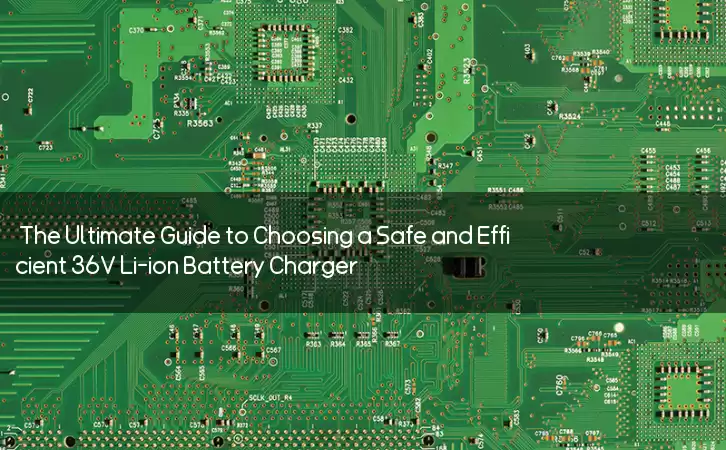Information Center
The Ultimate Guide to Choosing a Safe and Efficient 36V Li-ion Battery Charger
Published:2023-06-18 10:32:23 Author:Green WCND Views:47Lithium-ion batteries have become increasingly popular in recent years because of their high performance and relatively low cost. However, like all other batteries, they require an efficient charger to maintain and extend their lifespan. In this article, we will explore the features of a 36v li-ion battery charger and how it can benefit users.

One of the most significant advantages of li-ion batteries is their high energy density, which means they can store a lot of energy in a small package. However, one of the downsides of li-ion batteries is that they are prone to thermal runaway, which can cause them to overheat and lose capacity over time. Therefore, a 36v li-ion battery charger should feature advanced safety technologies to prevent overcharging, over-discharging, and over-temperature.

Another essential feature of a li-ion battery charger is its charging rate. A 36v li-ion battery charger should be designed to deliver a charging current that is suitable for the specific battery capacity. Ideally, a charger should be able to charge a battery within a reasonable time without causing any damage to the battery. Li-ion batteries are sensitive to heat, so charging them too quickly or at a high rate can cause them to overheat, leading to capacity loss and reduced lifespan.
In addition, a 36v li-ion battery charger should be easy to use and operate. Some chargers come with a microcontroller that can automatically detect the battery type and adjust the charging current and voltage accordingly. This feature can save users time and ensure that the battery is charged correctly every time.
Furthermore, a li-ion battery charger should be durable and built to last. Some manufacturers use low-quality materials to reduce costs, which can lead to chargers that fail prematurely or become unreliable over time. A good 36v li-ion battery charger should be made from high-quality materials and designed to withstand long periods of use.
Finally, a 36v li-ion battery charger should be compatible with a wide range of li-ion batteries. There are many different types of li-ion batteries available, and each has its own unique characteristics and charging requirements. A good charger should be able to charge multiple battery types, which can save users money by not having to buy different chargers for different batteries.
In conclusion, a 36v li-ion battery charger is an essential component of any li-ion battery system. It should feature advanced safety technologies, a suitable charging rate, ease-of-use, durability, and compatibility with multiple types of li-ion batteries. With the right charger, users can ensure that their li-ion batteries are charged safely, efficiently, and in a timely manner, ultimately extending their lifespan and maximizing their performance.
The battery pack is the heart of a golf cart, silently powering every acceleration and climb on the green. However, battery degradation often goes unnoticed, mu···
The battery pack is the heart of a golf cart’s power system, yet maintaining it has long been a challenge for technicians. Traditional troubleshooting methods—···
For golf course managers, ensuring smooth and efficient operations is crucial for providing a memorable experience for golfers and maintaining the reputation of···
A battery tester ensures golf course cart batteries operate efficiently and reduces downtime through the following ways:I. Precise Battery Condition DiagnosisOp···





